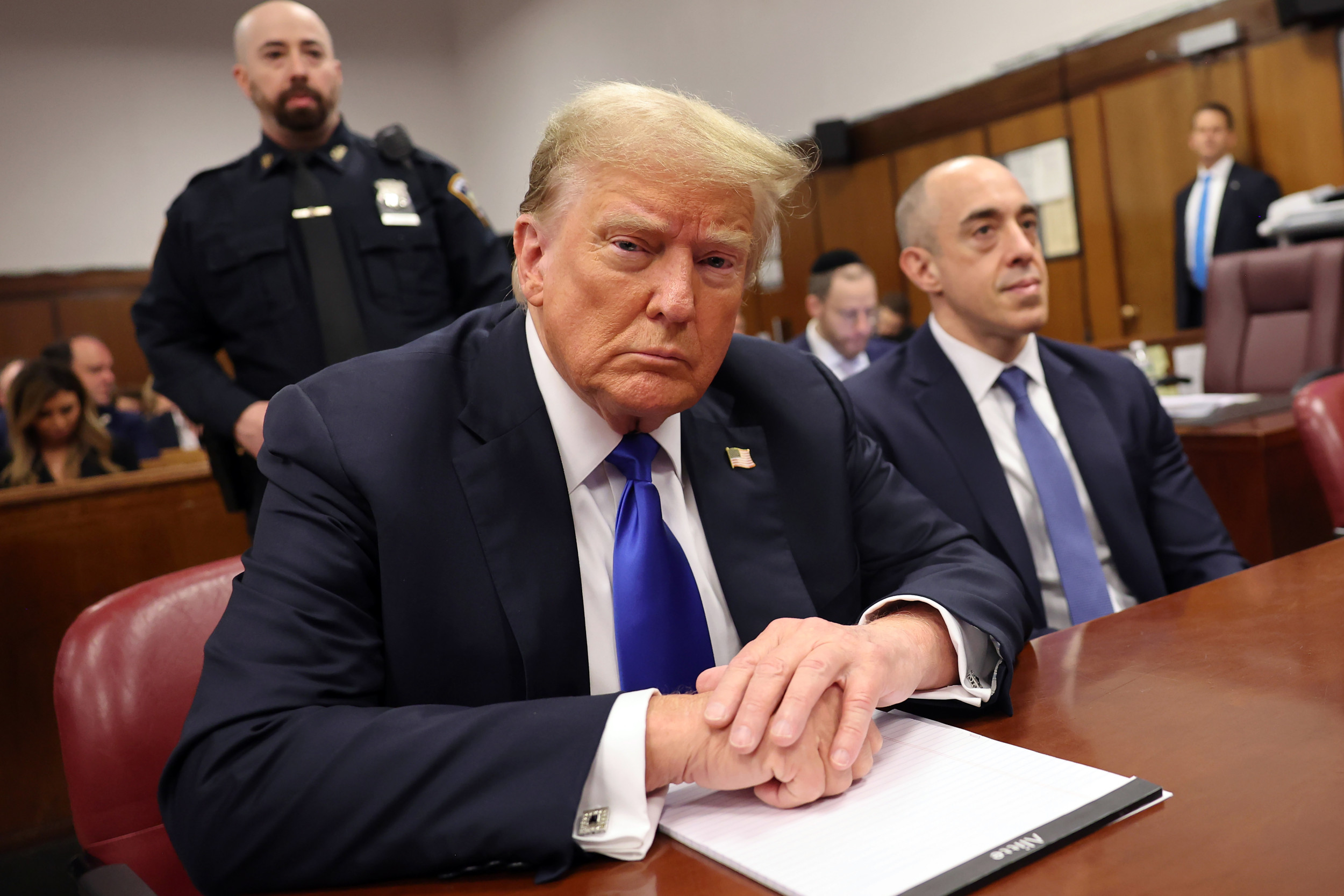South Korean President Yoon Suk Yeol's declaration of martial law on Tuesday is about the domestic political situation rather than any fear of imminent attack by North Korea, an official in his office told Newsweek.
Yoon faces numerous challenges from the opposition Democratic Party, which has been seeking to impeach top prosecutors, and the chief auditor has rejected a government budget proposal as the president seeks to implement domestic reforms. His approval rating had sunk to 19 percent.
"It's a mainly domestic situation. He believed he cannot run the government as usual," the official in Yoon's office told Newsweek, speaking on condition of anonymity because he was not authorized to speak to the media.
The declaration of martial law was broadly criticized by Korea's Democratic Party and by Yoon's own People Power Party. The party's leader, Han Dong-hoon, called martial law "wrong," vowing: "We will stop it along with the people."
Yoon declared martial law in a surprise address on Tuesday, pledging to root out "pro-North Korean forces and to protect the constitutional order of freedom."
Yoon "believed it's an emergency situation so he declared it. His argument is that he did it in order to preserve democracy," the official said, adding it was not directly to do with the situation of his wife, Kim Keon Hee.

Kim has been cleared by prosecutors over accusations of stock manipulation and over receiving a designer handbag as a gift, but she has also been accused by the opposition of influence peddling.
South Korea's Yonhap news agency reported several hours after the announcement that martial law-enforcing soldiers had entered the capital's main parliamentary building, shortly after reports suggested troops were attempting to access the National Assembly compound. Footage from Seoul shows protests outside government buildings.
"All political activities" are banned under martial law and the media are "subject to government monitoring," domestic media reported, citing the commander in charge of instituting martial law. Anyone who violates martial law can be "arrested without a warrant," the commander said.
The move is unprecedented in South Korea since the 1980s, coming as a "major shock," said Chris Deacon, an assistant professor in politics and international relations at the London-based School of Oriental and African Studies. "It is a deeply concerning move for South Korean democracy," Deacon told Newsweek.
Yoon's speech largely focused on wiping away alleged pro-Pyongyang forces and weeding out communism, but there is yet to be any "clear and credible evidence" of North Korean collusion with the opposition in South Korea, nor a possible uprising orchestrated by Pyongyang, said Andrew Yeo, a senior fellow with the Washington, D.C.-based Brookings Institution's Center for Asia Policy Studies.
Tensions between the north and south on the Korean Peninsula have worsened throughout the year. Pyongyang officially rolled back the decades-held policy of reconciliation, blew up key transit links with the south and has sent thousands of balloons of trash over the border while South Korea targeted the north with anti-regime propaganda.
The two nations are still technically at war and have been since an armistice marked the end of the Korean War in 1953. But South Korea fears Pyongyang's increasingly close relationship with Moscow, the help the Kremlin is thought to be providing for North Korea's conventional and nuclear weapons programs, and the experience thousands of North Korean troops are gaining fighting for Russia against Ukraine.
It's hard to say what the exact push was for Yoon to declare martial law at this point, Yeo told Newsweek, but the "rationale is more domestic than international."
It comes "from left field," Yeo added, although it's "not entirely surprising."
This could be a "political mistake" on Yoon's part, stemming from the opposition's dominance of the National Assembly and the president's "poor relationship with his own party," said Ramon Pacheco Pardo, a professor of international relations at King's College London.
"In terms of relations with the United States, this move is going to significantly weaken President Yoon's position since the South Korean population is going to strongly oppose this," Pacheco Pardo told Newsweek. "Thus, Washington will have to deal with a weakened Yoon, who may not survive politically if the liberal and conservative parties join hands."
A spokesperson for the U.S.'s National Security Council told Newsweek that the U.S. government is "in contact with the ROK government and is monitoring the situation closely." South Korea's official name is the Republic of Korea.
"Although Yoon has cited supposedly North Korea-supporting elements within the South as his reasoning, many will see this as a desperate attempt to stave off further attacks from the opposition party—which holds a majority in the South Korean National Assembly—and potential attempts to impeach him," Deacon said. "His actions may, however, only hasten that impeachment."
There have been rumors of impeachment efforts swirling, added Yeo. Yoon may have thought he had little to lose, although this could catalyze even louder calls for impeachment beyond the opposition, Yeo said. Martial law could push civil society—which does not look back fondly over the martial law of decades past—to back impeachment demands, he argued.
In an interview with Newsweek last month, Yoon underlined that his domestic reform agenda was at least as important as the situation with the North given the difficulties South Korea faces over health care and pensions with the lowest birth rate of any major economy and a rapidly aging population.




















 English (US) ·
English (US) ·